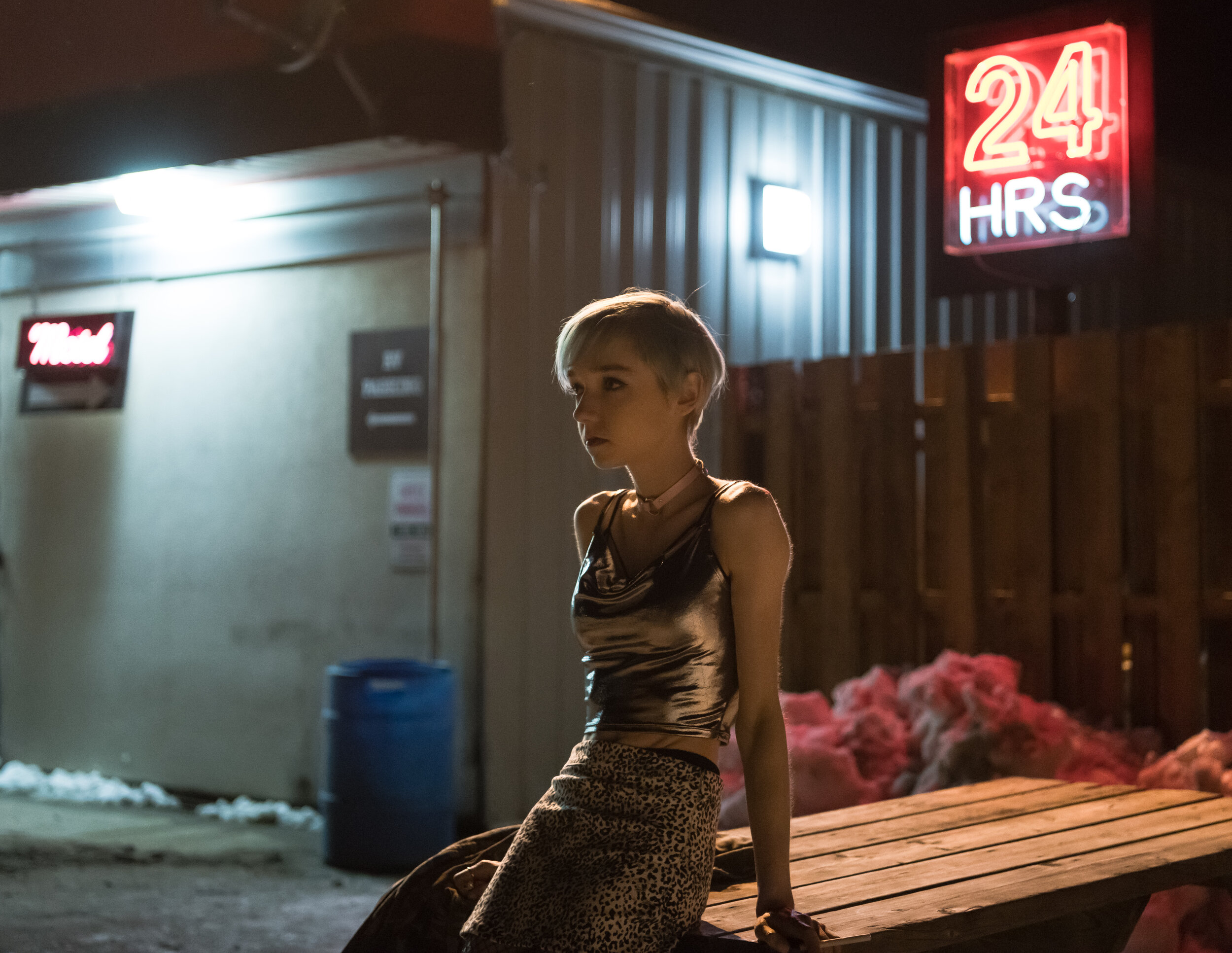Director Rama Rau’s first fictional feature is a beautiful, raw and honest piece about an alarming issue within Canadian society
Photo courtesy A71 Entertainment
By Ivonne Flores Kauffman
Rama Rau, an award-winning director best known for her documentaries League of Exotique Dancers and The Daughter Tree makes her transition into fiction with Honey Bee.
Honey Bee tells the story of Natalie (Julia Sarah Stone), a troubled teenager who spends her days sleeping in motel rooms and having sexual interactions for money with truck drivers at night. But Natalie’s job is not a form of rebellion or a way of making easy-money; Natalie is a sex traffick victim.
The film opens with Natalie getting a tattoo of Ryan (Steven Love), her boyfriend. Him and Honey Bee — his pet name for Natalie — are young and in love, or at least that’s what it looks like. Soon enough, we learn that Ryan is more than Natalie’s boyfriend; he is her pimp.
Photo courtesy A71 Entertainment
Ryan has trafficked Honey Bee and three other young women; all of them living in a motel room. However, none of these girls see themselves as prisoners.
With lies and manipulation, Ryan has brain-washed these young and vulnerable women into thinking that they are a family and that he takes care of them. The first 20 minutes of the movie are slow-paced and repetitive. It’s not until Natalie is arrested for prostitution that the story really begins. When the cops interrogate her about Ryan, Honey Bee refuses to give him up.
Being a minor, she is sent to a foster home instead of prison. Natalie’s new foster home, located in a farm in Northern Ontario consists of her foster parents (Martha Plimpton and Peter Outerbridge), Chante (Michelle McLeod) and Matt (Connor Price), the two troubled and non-threatening kids they take care of.
Despite being genuinely nice people, Natalie hates her new foster family. She repetitively tries to escape and return to Ryan. Natalie’s rude and ungrateful behaviour makes it hard for the audience to empathize with her.
It’s not long after many small occurrences happen that Natalie begins to change her attitude and warm our hearts. The movie is an honest story on how bumpy the road to recovery can be for human trafficking victims. The film also shows that despite the fact that some women are able to escape this life and find healing within themselves, many of them are too sucked into the system and the control of their pimps that it’s seemingly impossible for them to escape this life, even when given a second chance.
Photo courtesy A71 Entertainment
The beauty of this film is accomplished by the astonishing performances. Stone does a terrific job in this film by playing a paradoxical character extremely well — a skinny, vulnerable-looking girl whose life has led her into becoming a stubborn and angry young woman. Furthermore, while Love, Plimpton, McLeod and Price’s characters are created to support Natalie’s story, each of them manages to intrigue the audience to the point that their stories become as relevant as hers.
Another important aspect that makes this film worth watching is the honest narrative and the intensive research scriptwriter Bonnie Fairweather and producer Sally Karam did. This research included the first-hand testimony of an officer from the Durham Regional Police Service, as they had recently started their human trafficking unit. Karam worked with the officer to create an accurate and honest narrative.
In an email interview with director Rama Rau and producer Sally Karam, Karam explained that she not only worked with the Durham Regional Police “to be sure Natalie's journey with her pimp was accurate”, but she also worked with a Crown Attorney in Oshawa.
“The Crown Attorney sees these girls in court day in and day out and gave us insight into their reluctance to leave their so-called 'street families',” said Karam.
When it comes to directing, Rau said her biggest challenge while transitioning from documentary into fiction was “to keep everything authentic.” Rau wanted to keep every aspect of the film real, from the actors to the way the story was portrayed. Rau explained that human trafficking rings are strong in Northern Ontario and operate through the province. For her, the importance of making this film was “to tell the story of one of these girls and take the audience into their world.”
With great performances and an engaging plot, Honey Bee is the film every Canadian should watch to learn about an alarming issue that is often ignored within the country.
Honey Bee will be available in video on demand on December 10.



